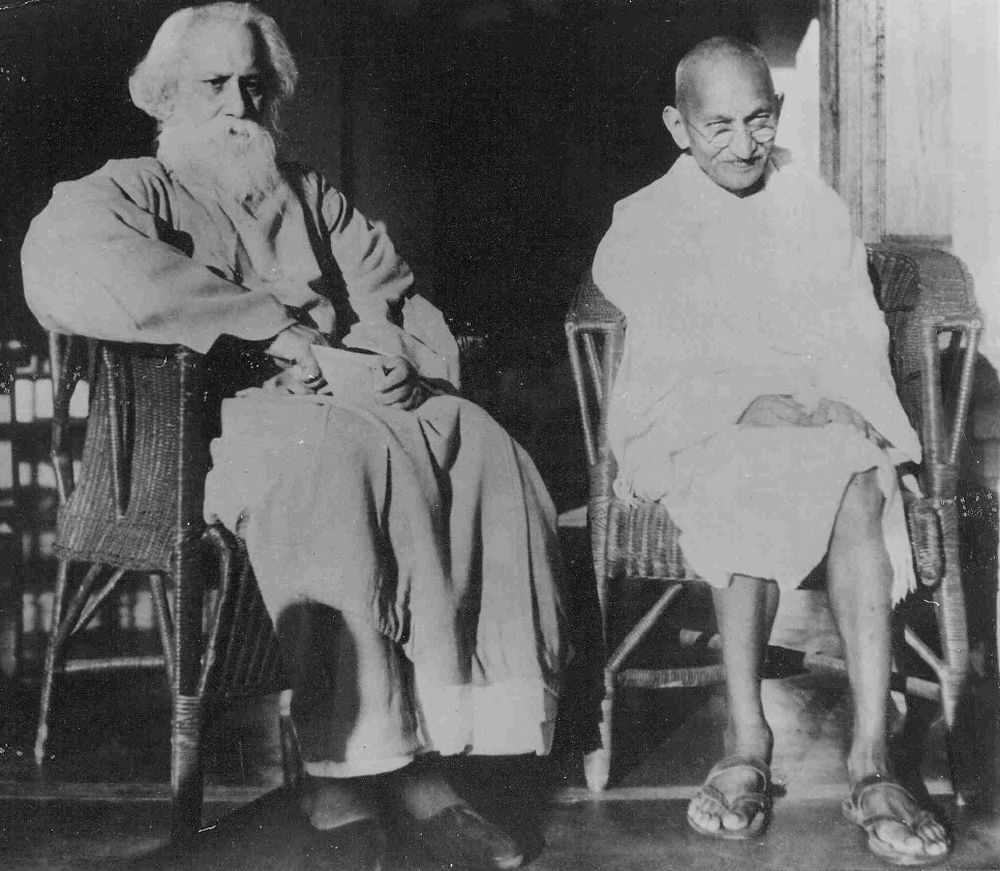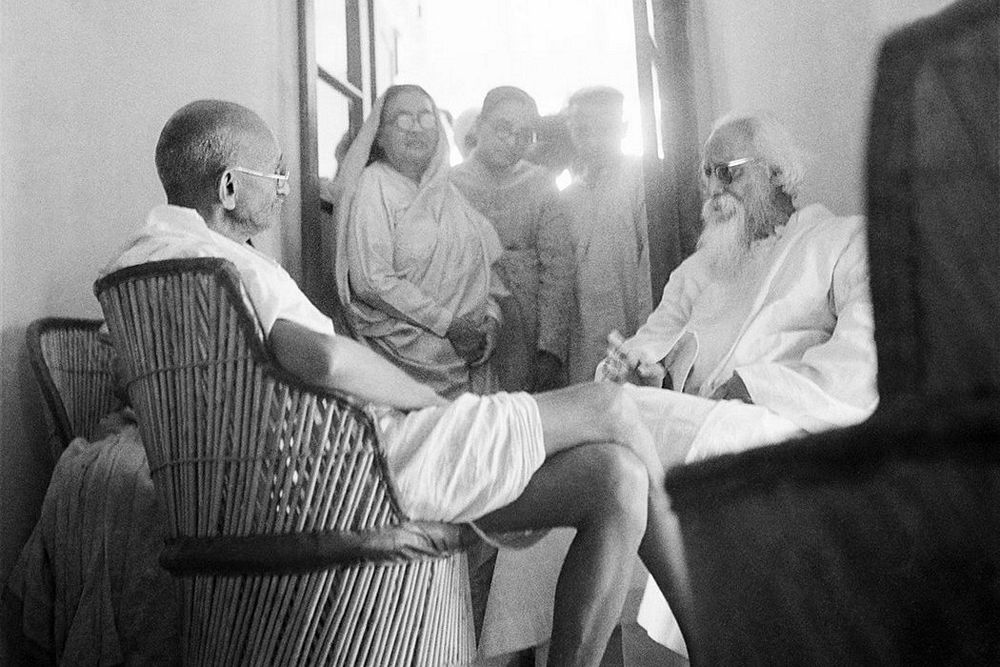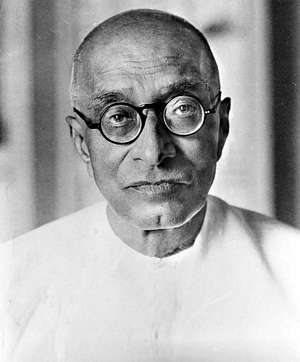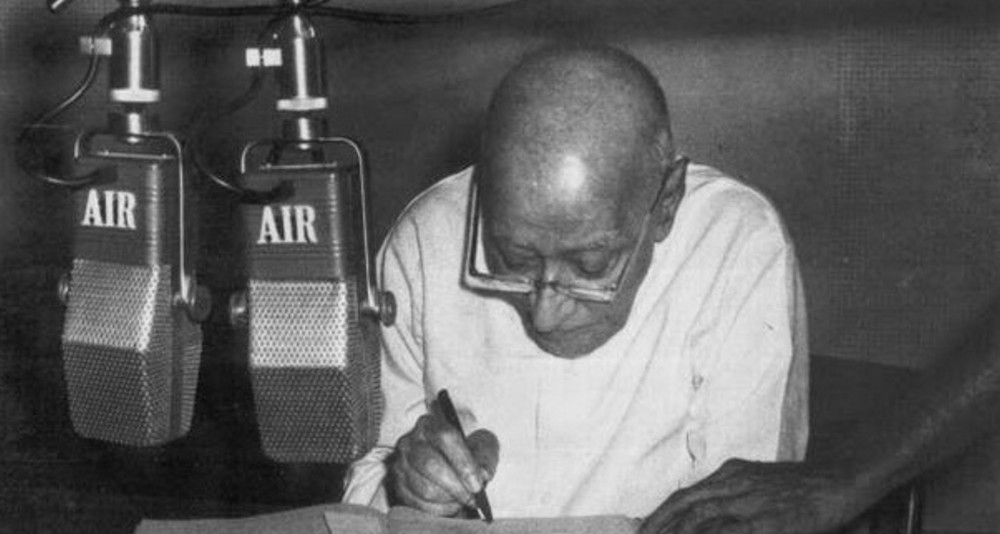Described as a “world poet,” Rabindranath Tagore is considered a mystifying ecumenical figure and an archetype of human creative possibility. Rabindranath Tagore bestowed the title of ‘Mahatma’ (“Great Soul”) on Mohandas Karamchand Gandhi in 1915. Mahatma Gandhi called Tagore Gurudev (“Revered Master”) and he attained a certain classicality. Tagore’s literary works have universal appeal and that illuminates his complexity and “myriad-mindedness.”
Nevertheless, experts have said that although Tagore admired Gandhi, he differed with him on specific issues.

“Tagore admired Mahatma Gandhi immensely and expressed his admiration for his leadership time and again, but sharply differed with him when Gandhi was departing from adequate reasoning,” Nobel-prize winning economist Amartya Sen once said.
After the Nepal-Bihar earthquake of 1934, Gandhi credited the disaster to the custom of untouchability among Biharis. Gandhi had said the earthquake was “a divine chastisement for the great sin we have committed against those whom we describe as Harijans”.
Although Tagore was against untouchability, he found this line of reasoning on Gandhi’s part unfounded and irrational.
Apparantly, Tagore shot off a refutation on rationalist lines, with a appeal for it to be published in Gandhi’s periodical, Harijan. The correspondence expressed “painful surprise” at “this kind of unscientific view of things”. It was plainly erroneous, Gurudev argued, to “associate ethical principles with cosmic phenomena”:
In the Harijan issue of 16 February, 1934, Tagore wrote his article The Bihar Earthquake to which Gandhi wrote his rejoinder Superstitions vs. Faith (pp. 115-121). Tagore considered Gandhi’s view that untouchability had brought down God’s vengeance upon certain parts of Bihar in the form of an earthquake as ‘unfortunate’, ‘unscientific’ and “too readily accepted by a large section of countrymen” (pp. 115): “If we associate ethical principles with cosmic phenomena, we shall have to admit that human nature is superior to Providence that preaches its lessons in good in orgies of the worst behaviour possible” (p.116). This amounts to “making indiscriminate examples of casual victims…in order to impress other at a safe distance who possibly deserve severer condemnation” (p 116). He felt the kind of argument that Gandhi used by exploiting an event of cosmic disturbance far better suited the psychology of his opponents than his own; and, “We, who are immensely grateful to Mahatmaji for inducing, by his wonderworking inspiration, freedom from fear and feebleness in the minds of his countrymen, feel profoundly hurt when any words from his mouth may emphasize the elements of unreason in those very minds — unreason which is a source of all blind powers that drive us against freedom and self-respect”. (p117).

To this, Gandhi had replied that he felt phenomena like droughts, floods, earthquakes et cetera, though they seem to have only physical origins, are somehow connected with man’s morality.
Gandhi replied by saying that he long believed phenomena produce results both physical and spiritual; and, “The converse I hold to be equally true … We do not know all the laws of God nor their working… I believe literally that not a leaf moves but by His will. Every breath I take depends upon His sufferance …. what appears to us as catastrophes are so only because we do not know the universal laws sufficiently … (catastrophic) visitations… though they seem to have only physical origins are, for me, somehow connected with man’s morals … My belief is a call to repentence and self-purification … even as I cannot help believing in God though I am unable to prove His existence to the sceptics, in like manner, I cannot prove the connection of the sin of untouchability with the Bihar visitation even though the connection is instinctively felt by me” (pp.118-l20). And the utilitarian then spoke and bared himself thus, “If my belief turns out to be ill-founded, it will still have done good to me and those who believe with me. For we shall have been spurred to more vigorous efforts towards self-purification…” (p.120). And answering Tagore’s stinging comment that “our own sins and errors, however enormous, have not got enough force to drag down the structure of creation to ruins” (p. 117), he said, “On the contrary I have the faith that our own sins have more force to ruin that structure than any mere physical phenomenon” (p, 120), And he concluded, ” …the connection between cosmic phenomena and human behaviour is a living faith that draws me nearer to my God, humbles me and makes me readier for facing Him”. Gandhi, in arguing thus, is proved one who must maximise utility and make use of every circumstance to forward ends he considers desirable. And his conviction about his belief obliterates from consciousness any apparent factual inconsistencies that his system of faith has with a physical phenomena as ordinarily understood. Both, in their own way, are relevant and unimpeachable.
 Chakravarti Rajagopalachari was the
Chakravarti Rajagopalachari was the 